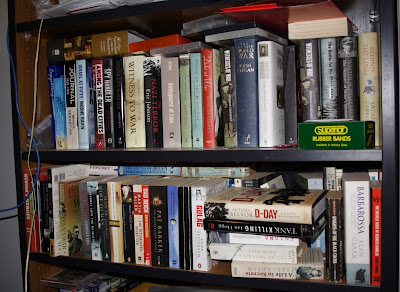After ten years of drought it is desperately needed. Melbourne’s water storages are creeping up slowly. An added benefit is that rain now will delay the risk of fire this summer. Unfortunately, government sources are suggesting that the risks of the current fire season are as high as past summer.
Now you have to forgive me I am going to be a little morbid for a moment. Further north the fire season has started early. In NSW as I type there are 50 wildfires burning across the state. My brother is a Rural Fire Service Brigade Captain on the NSW Central Coast. His brigade was called out to 22 scrub fires in just the past month. And it is still only spring.
We drove across the back road through Marysville towards Warburton. This area around Marysville was some of the most badly burnt in the Black Saturday Fires on this 7th February past. I posted about the devastation through this way a while ago.
This time the weather was clear and we could look across the valleys to distant ridges. In some places your eye was drawn to the green patches in the valleys below (green thanks to the recent rain) and things did not seem too bad.
 But when you looked at the closer ridgelines you really realised how extreme the conditions were.
But when you looked at the closer ridgelines you really realised how extreme the conditions were.
These few photos show a mountainside totally destroyed. All the trees seem to have perished in the heat.
 Something almost unheard of in the Aussie bush, our eucalyptus trees are tough as nails. Also many of the trees seem to have been felled as if in a wind generated by a raging fire-storm.
Something almost unheard of in the Aussie bush, our eucalyptus trees are tough as nails. Also many of the trees seem to have been felled as if in a wind generated by a raging fire-storm.  These destroyed mountainsides remind me of the destruction caused by the eruption of Mount Saint Helens back in 1980. Like there I think the forest will be decades in regenerating.
These destroyed mountainsides remind me of the destruction caused by the eruption of Mount Saint Helens back in 1980. Like there I think the forest will be decades in regenerating.All we can hope is we don’t see such conditions again this coming summer.
Enough of doom and gloom.
Not far from these scenes of destruction there is an untouched patch of bush along Badger’s Creek. In there I managed the rare treat of photographing this fat little fellow.
 He (and I know he is a he because of his colouration) is a Common Bronzewing, a native pigeon species. Although they are, as the name suggests, quite common they are also shy and will not often sit long enough to have their portrait taken.
He (and I know he is a he because of his colouration) is a Common Bronzewing, a native pigeon species. Although they are, as the name suggests, quite common they are also shy and will not often sit long enough to have their portrait taken.They are quite gaudily coloured birds and the wing feathers are a metallic sheen that change colour depending on the angle the light strikes them. The first photo only kind of shows the variation because he is in the shade.
 This second piccie is not such a good shot. He insisted on turning his back (I said they are shy!) but it does show just how brilliantly metallic those feathers are.
This second piccie is not such a good shot. He insisted on turning his back (I said they are shy!) but it does show just how brilliantly metallic those feathers are.

































